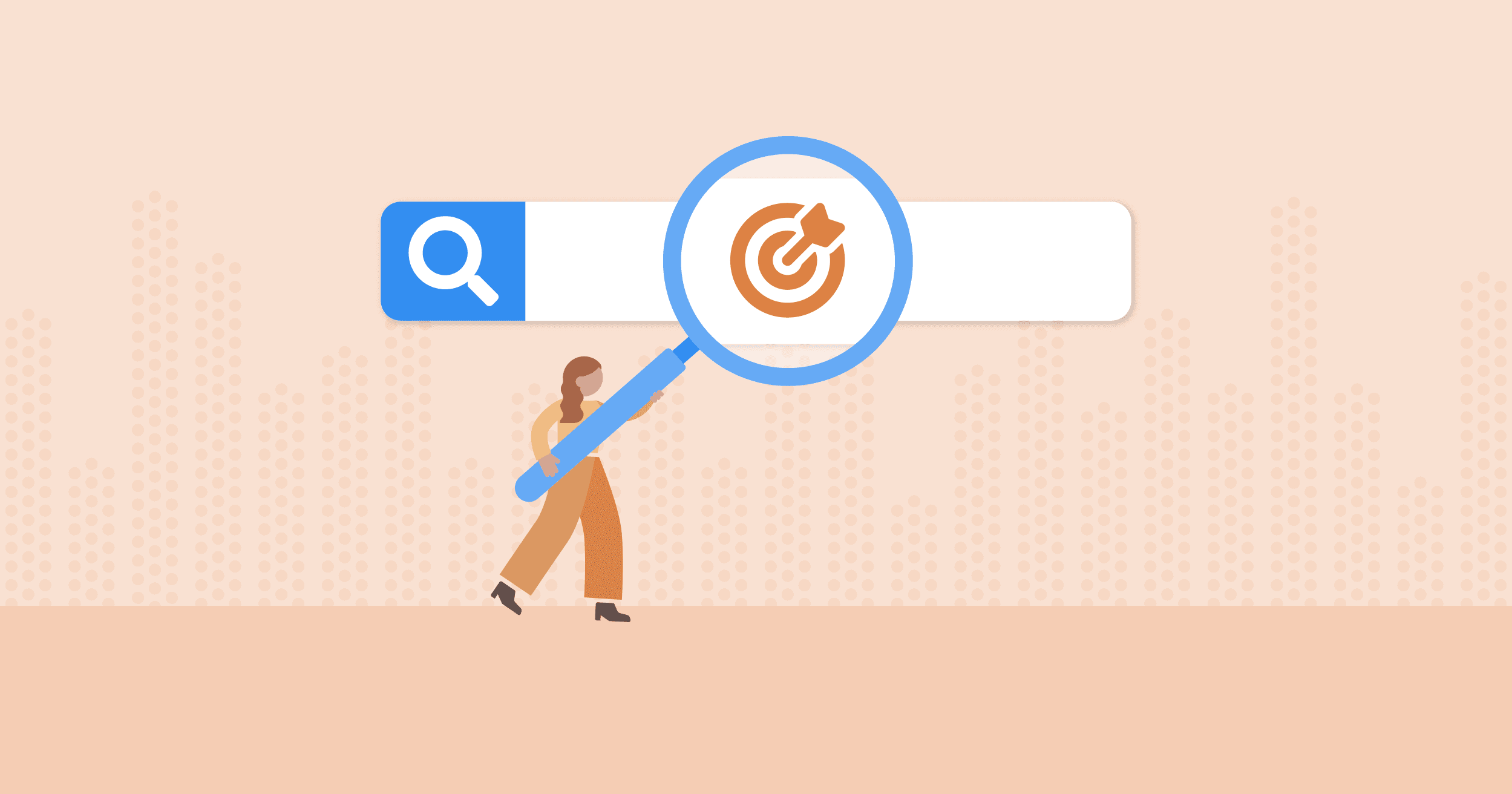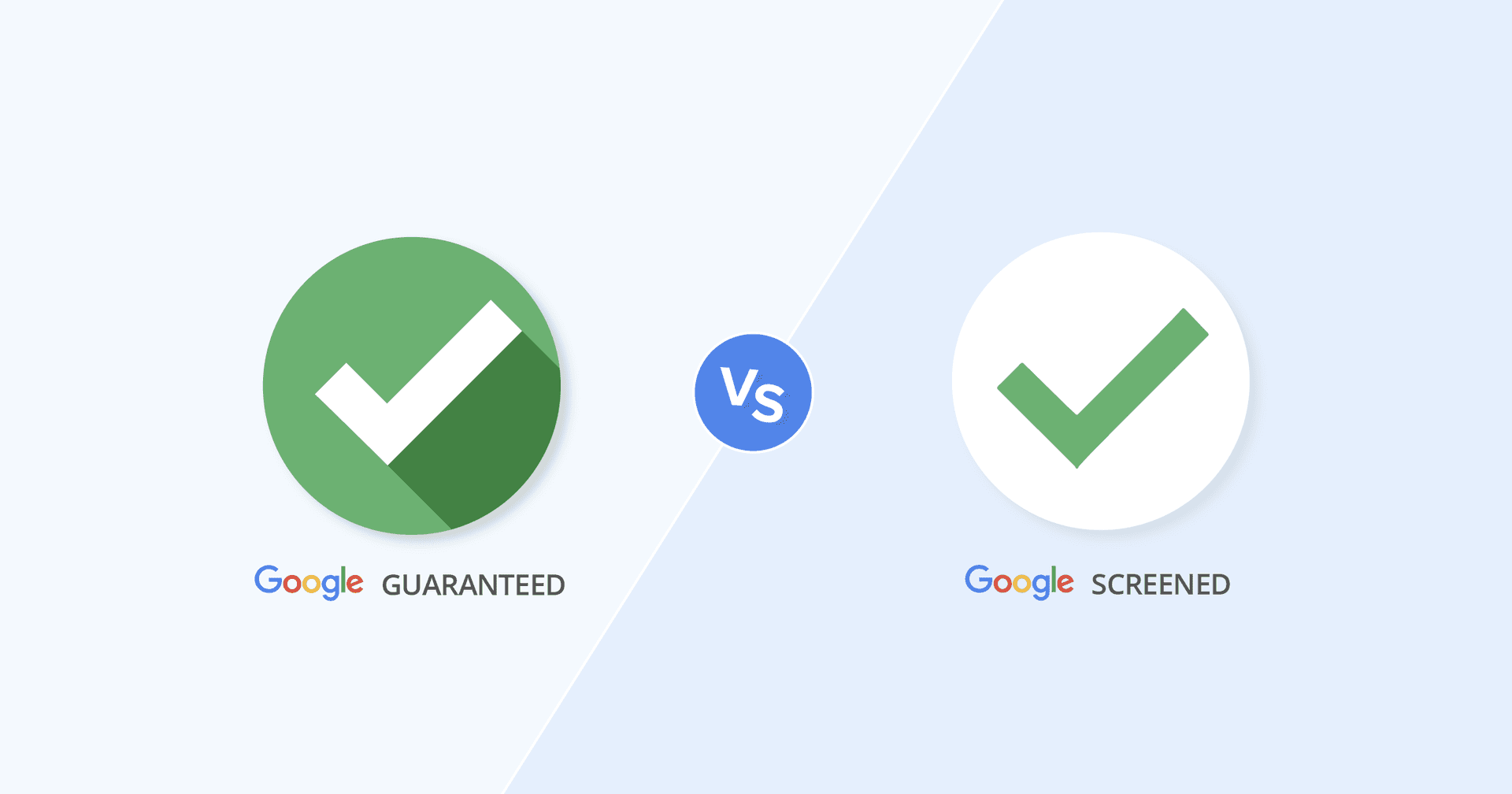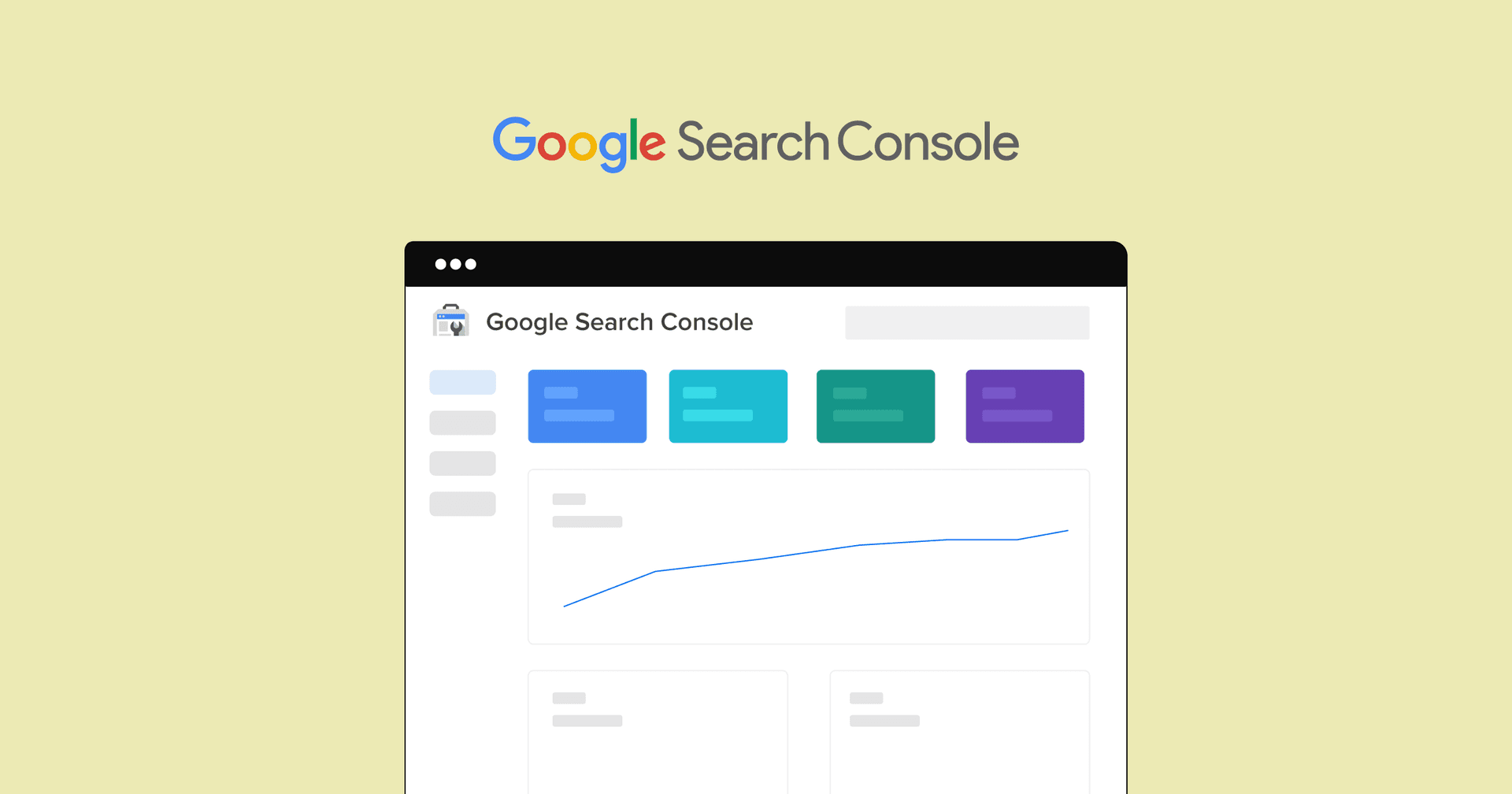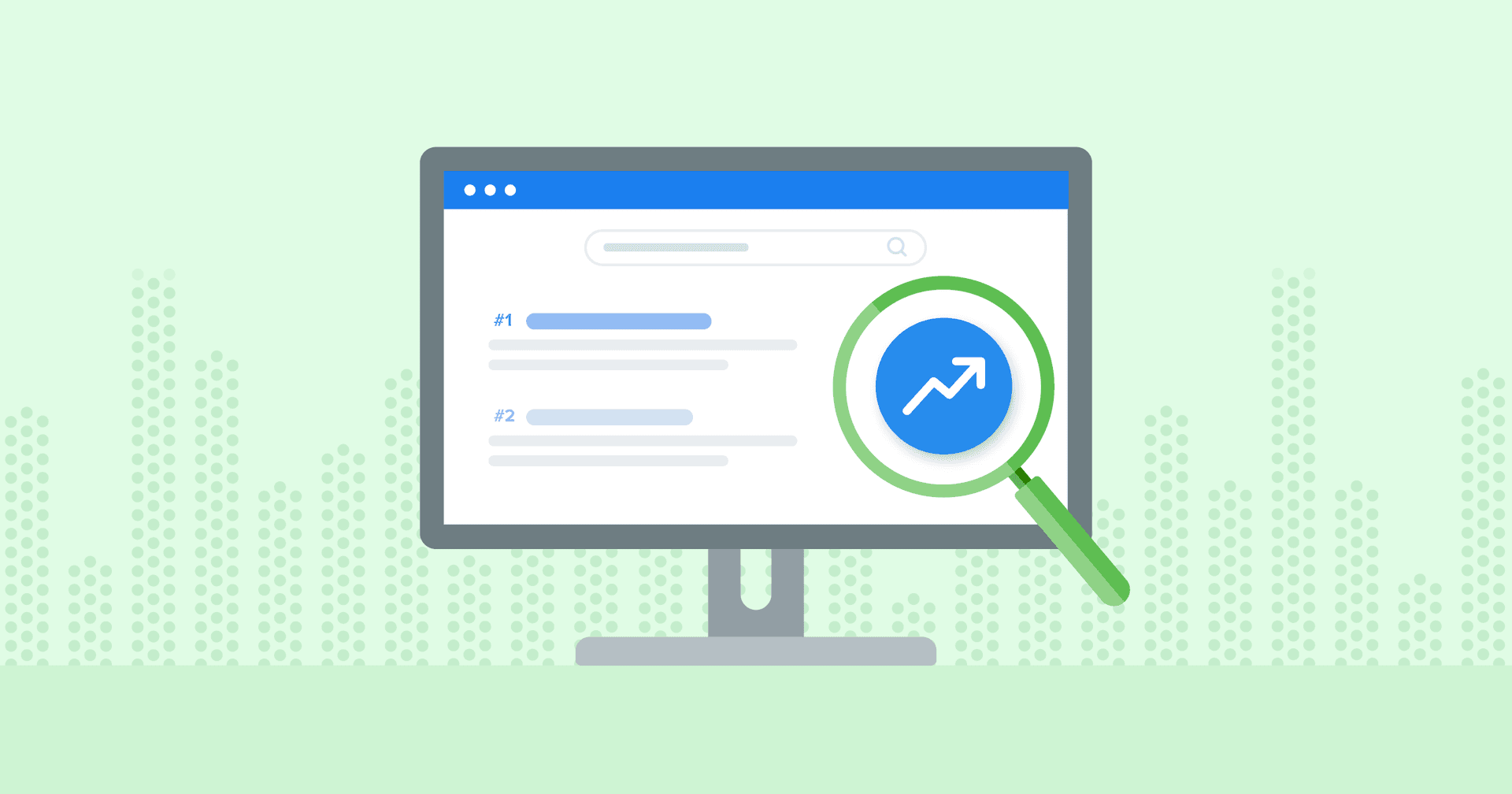Table of Contents
QUICK SUMMARY:
SEM reporting tools are software applications designed to track and analyze data from Search Engine Marketing campaigns, essential for optimizing strategies and enhancing SEM effectiveness. This article presents powerful SEM reporting software tools to streamline agency workflows and track key metrics, offering insights into the best solutions for efficient data tracking and achieving client goals.
As the saying goes, “The best place to hide a dead body is page two of Google”.
Improving your clients’ SERP ranking and the performance of search advertising campaigns can mean the difference between victory and invisibility, which is why mastering the art of Search Engine Marketing (SEM) is a non-negotiable for digital advertising agencies.
The right SEM strategy connects your clients' brands with their most valuable prospects, placing them front and center when a potential customer heads to a search engine, types a query, and clicks ‘Enter’. Once leveraged correctly, SEM is a potent force that drives traffic, boosts conversions, and ultimately leads to campaign success.
That said, tracking those valuable SEM insights manually is just not feasible, especially for busy marketing agencies like yours. With keywords to monitor, competitors to outbid, and backlinks to leverage, relying on outdated manual methods will only hinder your efficiency.
Not to worry, though! In this article, we’ll explore the ins and outs of SEM and share the best tools to streamline your data-tracking process. That way, you’ll save billable hours and help your clients meet their SEM goals each and every time.
What Is Search Engine Marketing (SEM)?
As the term suggests, SEM is all about enhancing the overall visibility of your clients’ websites on search engines.
SEM comprises both organic content that shows up on searches and sufficiently answers user inquiries (or at least entices them to explore further), as well as paid search advertising that shows up with a “Sponsored” or “Paid” call-out text. Paid ads are displayed at the very top or side of SERPs, which maximizes visibility.
Take the example below that shows both organic and paid search results.
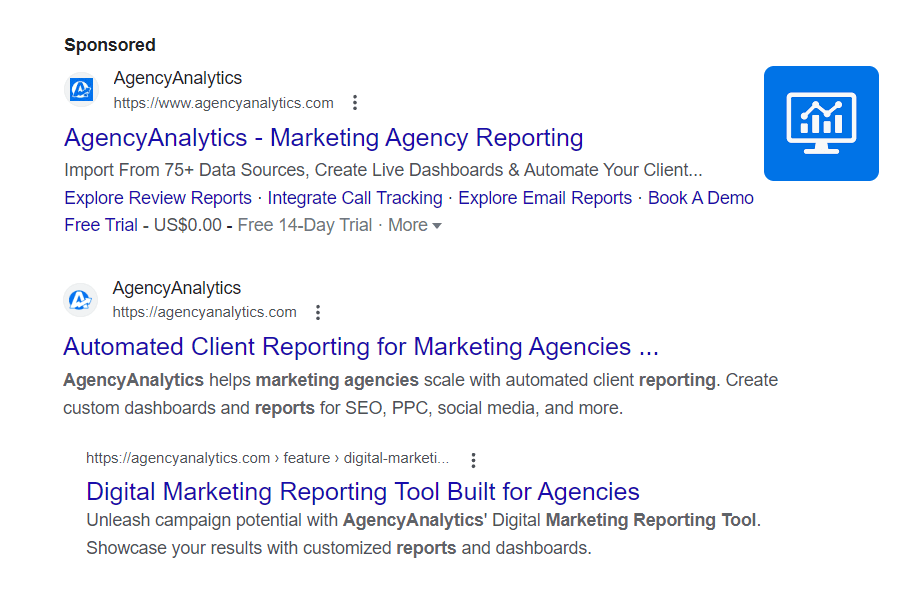
It’s worth noting that SEM has traditionally been used as an umbrella term for SEO and paid search efforts. However, in recent years SEM has begun to refer exclusively to paid advertising.
While both sides of the coin are valid, for the purpose of this article, we’ll stick to the all-inclusive definition, which encompasses both moving parts.
SEM vs. SEO: What’s the Difference?
These two terms are often confused with one another, but they’re distinct elements of the digital marketing mix.
Search engine optimization is one part of the SEM equation–the organic (unpaid) side.
For example, SEO efforts come in different forms, such as:
Understanding organic search intent and infusing relevant keywords or phrases into applicable content elements (e.g., metadata, blog titles)
Make sure that you're actually doing good keyword tracking! If you don't have an accurate idea of what keywords your ideal clients are searching for, you may spend time optimizing your content with the wrong keywords.
Jessica Tappana, Founder of Simplified SEO Consulting
Having an ongoing stream of inbound marketing content (such as a regularly updated blog). This is an important part of long-term SEO campaigns to generate results over time
Optimizing existing content to ensure it remains fresh, engaging, and search engine friendly
Acquiring reputable backlinks to increase organic traffic
Backlinks remain the best indicator to Google and other search engines that a webpage is considered important by internet users. Links can be compared to votes, but when it comes to backlinks, votes are not equal. The more relevance and authority a website has, the more weight the vote gets.
Andy Hill, Managing Director of Distribute Digital
Conducting regular SEO audits to address any impending website issues (e.g., addressing slow page loading times, optimizing content for mobile searches)
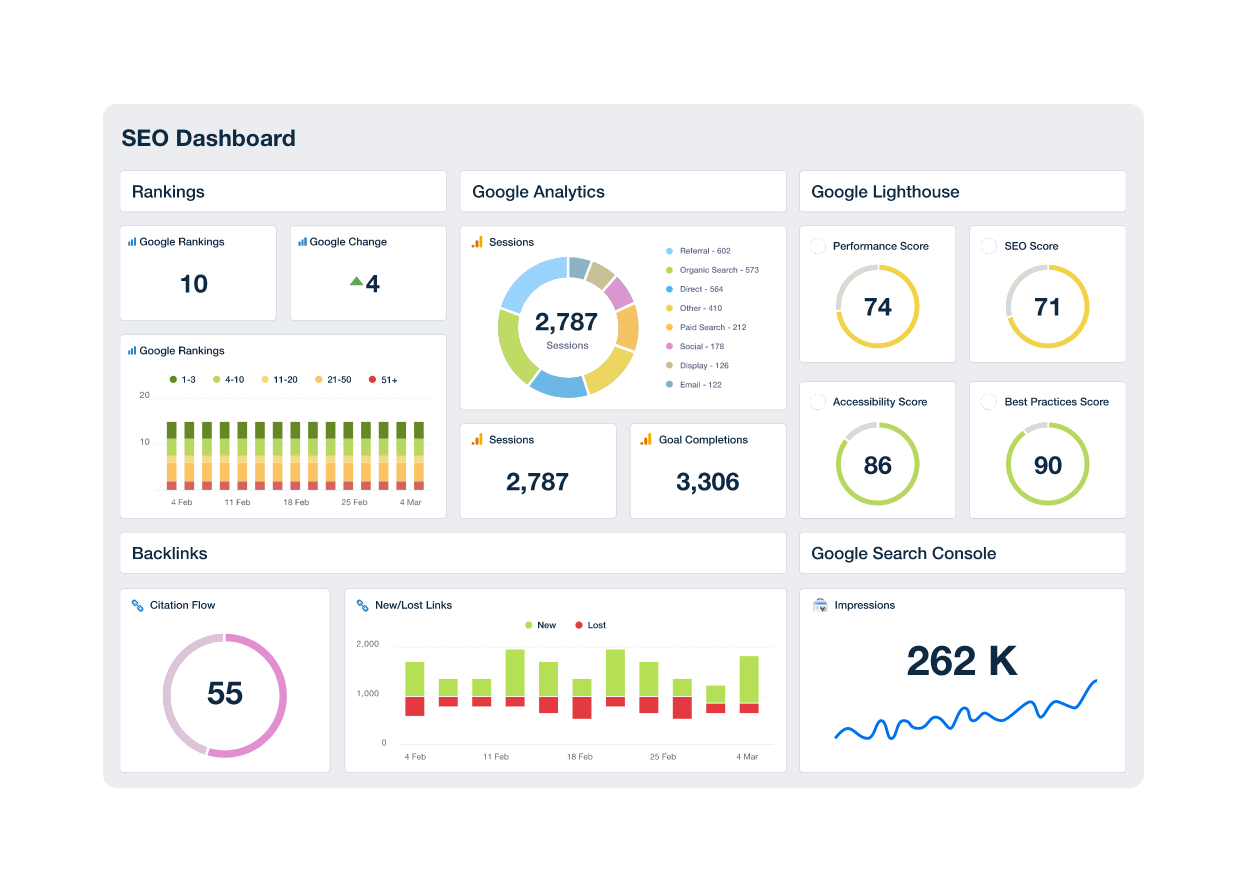
Quickly identify issues that could affect your clients’ search visibility. Get all of the SEO metrics you need to keep your clients ahead. Try AgencyAnalytics free for 14 days.
In addition to SEO, SEM also involves paid (otherwise known as PPC) strategies like:
PPC competitor analysis for keywords and phrases (e.g., analyzing search volume, keyword difficulty, and cost per click)
Keyword research will tell you what your prospects care about, and competitor analysis will give you information on how to stand out.
Warren Thompson, Co-Founder and Managing Director of Ollo Metrics
Generating leads through an effective bidding strategy. This means optimizing for high clickthrough rates and having an extra edge over the competition
Specifying ad targeting options (such as demographic data) to increase the chances of reaching the right audience and effective remarketing
A/B testing to help create compelling ads (e.g., testing variations of keywords and ad copy)
Optimizing over time to avoid ad fatigue while keeping an eye on ad quality score
It isn’t necessary to choose sides in the SEO vs. PPC debate when it comes to SEM because all the moving pieces work together to create better results for your clients.
Think about it–strong SEO campaigns result in increased domain authority and credibility. In turn, this may give paid search ads an extra boost and help users identify advertisers that are the real deal.
You may even be better positioned to extract SEO gold from PPC keywords by creating conversion-oriented search ads supplemented by informative organic content. This can also work vice versa, where you use PPC insights to inform an SEO strategy.
PPC’s first objective is to acquire qualified traffic, but as an agency that provides both PPC and SEO services, we also use PPC ads for testing and research. Before earning organic ranks for a keyword, we use PPC to test how users interact with a brand and its products.
Matt Beech, Marketing Director at patch.marketing
In essence, SEO and PPC work together to produce a strong SEM strategy that drives website visibility and traffic.
Why Do Agencies Need a SEM Reporting Tool?
The last thing you want is to fumble the ball on client questions like, “What was our monthly ROAS?” or “Which keywords should we use in upcoming organic content?” Automated PPC reporting ensures those answers are ready on schedule every cycle. Equip your team with versatile digital agency tools to answer fast.
That’s where a white label SEM reporting tool comes in handy. It’s useful to:
Access real-time updates and keep on the pulse of any evolving changes (e.g., a comprehensive ppc reporting dashboard will highlight any changes in clickthrough rates for PPC search ads)
Quickly identify any website issues that could be detrimental to search visibility (e.g., a sudden drop in keyword rankings because of a technical SEO issue)
Monitor competitor activity when it happens, as it happens. Observing what the competition is doing means swooping in at the right time to capitalize on opportunities (e.g., acquiring their broken backlinks, discovering untapped PPC phrases)
Combine data for greater insights. Rather than using separate PPC and SEO reporting tools, use a comprehensive, white-label report. By including data across multiple sources like Google Ad campaigns, SEO strategies, and website analytics, you’ll provide a more holistic view
Increase your agency’s overall efficiency. Streamlining marketing data means you won’t have to resort to painstaking manual work (e.g., copying and pasting into Google Sheets). After all, there are keywords to track, competitors to outbid, and SERPs to conquer!
12 Best SEM Reporting Tools for Agencies
Without further ado, here are the top SEM reporting tools your agency should explore.
1. Semrush
There’s no talking about SEM without mentioning Semrush. This powerful tool operates as a centralized hub for SEO data and paid advertising insights. Looking for ways to expand an existing Google Ad campaign? Semrush's PPC keyword tool is a great place to start.
A few of Semrush’s reporting features include backlink monitoring, competitor insights, changes in SERPs, and site audit reports. Their Pro package starts from $129/month and has a free 7-day trial.
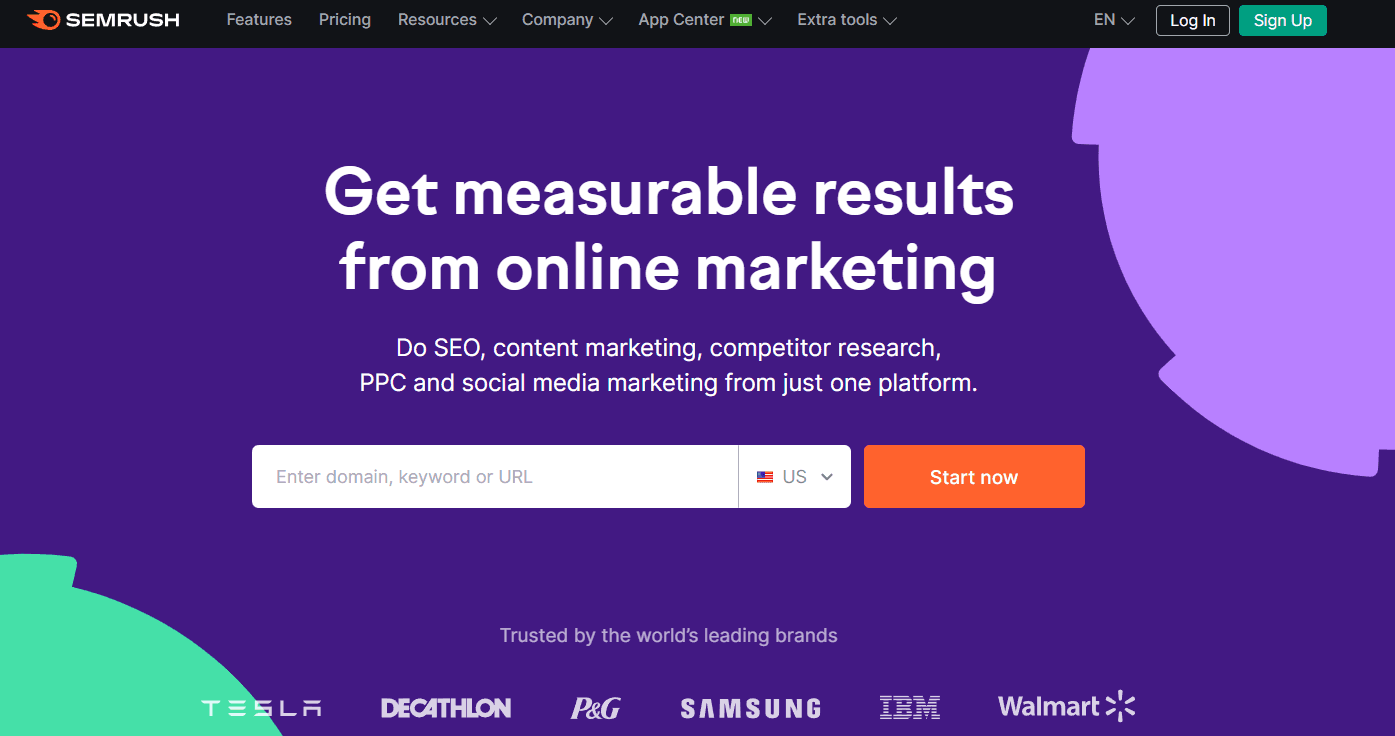
If you want backlink monitoring insights in an easier-to-understand format, try a visually appealing Semrush dashboard instead.
2. Ahrefs
Next up is another well-known SEO tool–Ahrefs. This SEO reporting software provides your agency with SEO reports for clients that include changes to keyword rankings, competitor backlink insights, and link-building opportunities.
Ahrefs starts from $99/month and offers free access to their Webmaster tool for website audit insights.
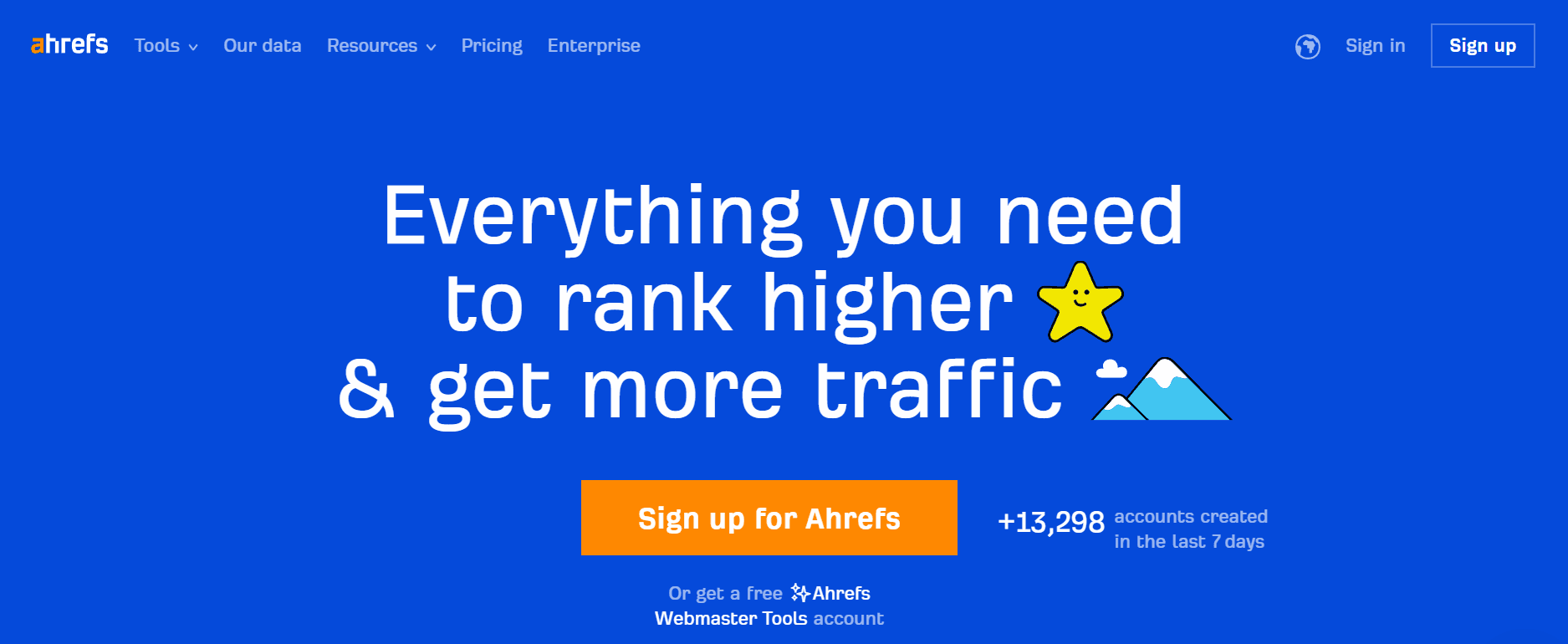
Got multi-platform SEM insights to track? Start with a fully customizable Ahrefs report and pull data from other platforms to see the big picture.
3. SpyFu
If you’re looking for an SEO analysis tool that focuses primarily on competitor analysis, SpyFu is an excellent option. With features like competitor insights, keyword research, and SERP monitoring, SpyFu helps identify opportunities to increase search visibility.
Their basic annual plan starts from $16/month and offers a money-back guarantee if you aren’t satisfied with their service.
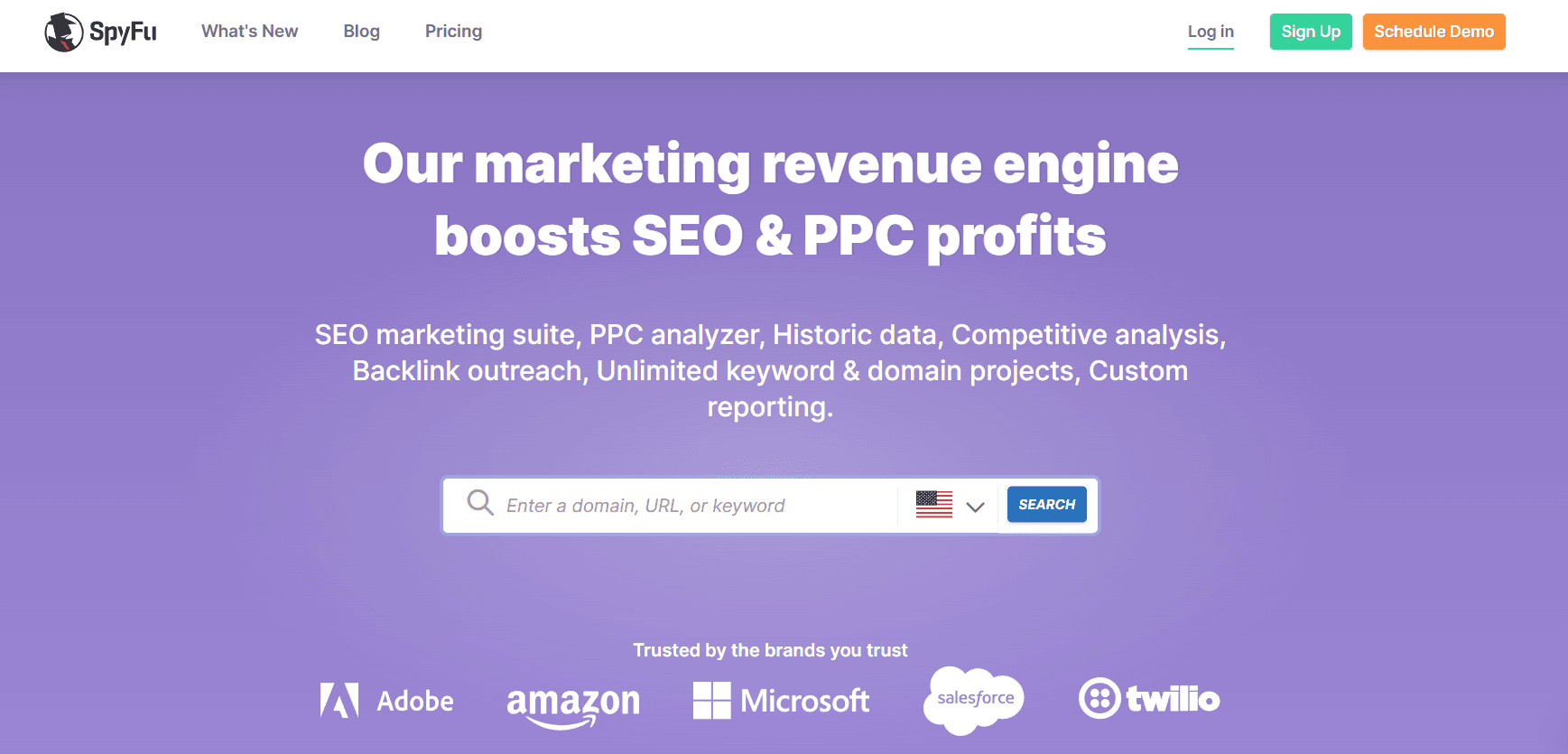
4. Moz
Another all-in-one SEO tracking tool is Moz. This SEO reporting software helps marketing agencies to do keyword research, conduct link analysis, and identify any notable changes in search engine results (such as dips in organic traffic).
Additionally, their auditing feature surfaces technical issues which could potentially impact overall search performance.
This SEO reporting tool offers packages from $99/month, and there’s also a free trial of Moz Pro for 30 days.
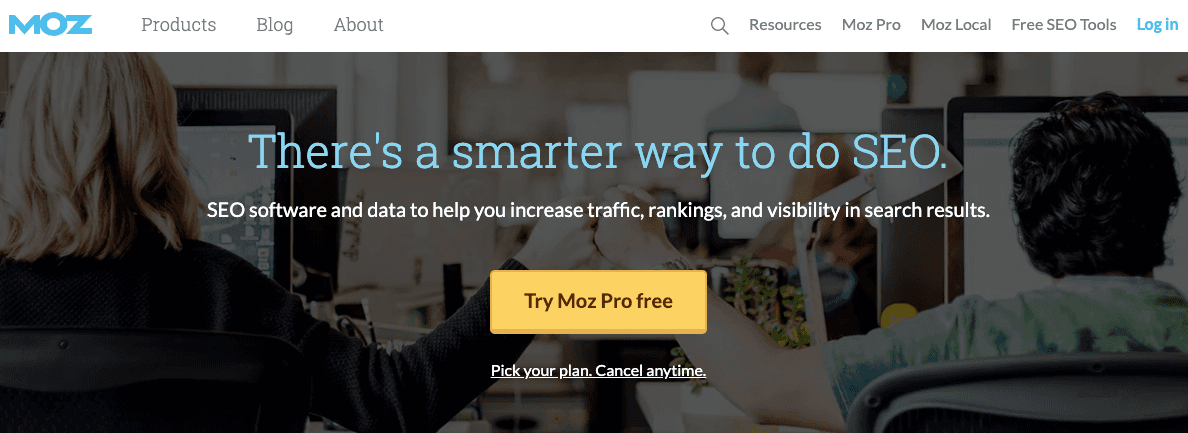
Stream Moz data into a data-driven dashboard for quick insights on backlinks and domain performance.
5. Google Ads
Any agency running PPC campaigns likely has Google Ads in the mix and for good reason.
This powerhouse tool includes an extensive range of features, such as:
Targeted advertising (including geographic and demographic ad specs), which helps to reach users that are searching for your clients’ products and services
Remarketing and Smart Bidding. This is useful for deciding on competitive pricing and re-engaging potential customers
Google Keyword Planner, which is a free tool that identifies relevant keyword terms, forecasts potential traffic based on ad spend, and helps to plan effective paid search campaigns
The cost of Google Ads is variable and usually depends on your client’s budget. However, it’s worth noting that Google Ads could cost anywhere from $1000 to $10,000 per month, and you’ll need a competitive bidding strategy to stand out.
Want to view Google Ads metrics alongside other valuable SEM insights? Filter Google Ads data into an intuitive dashboard for easy reference.

Don’t get lost in a numerical haystack. Use a pre-built Google Ads report template and customize it to include other SEM metrics–try it on AgencyAnalytics with a free 14-day trial.
6. Google Search Console
Another free SEM tool is Google Search Console, which aids search visibility by tracking website performance, highlighting technical issues, and identifying keyword opportunities.
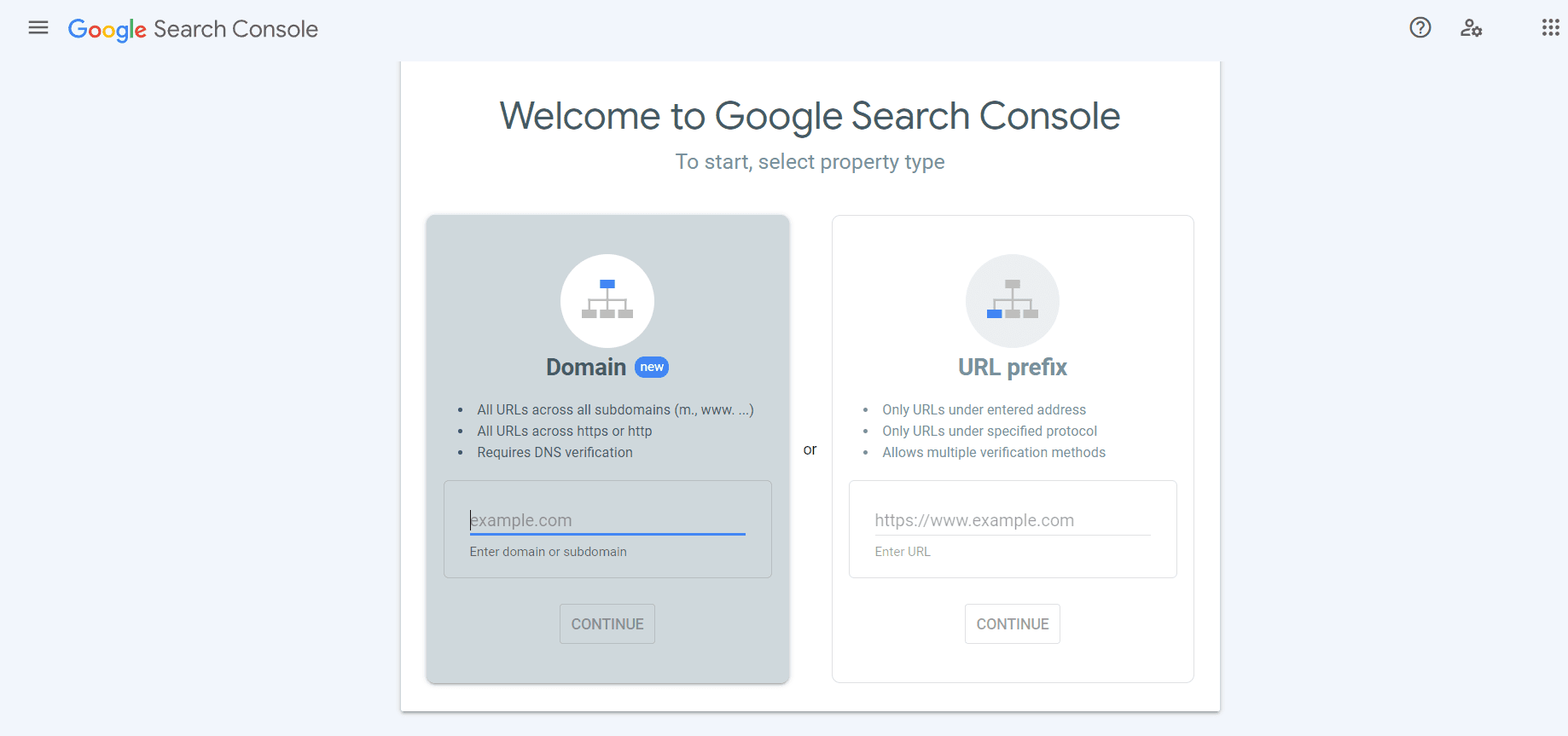
Busy SEO professionals like you don't have to waste time manually toggling between platforms to get website insights. Streamline Google Search Console data into a dashboard that automatically populates that information for you.
Here’s an additional tip–add Google search to your list of keyword research tools. Take it from this agency.
Another great and often overlooked tool is Google itself. Type your keyword into Google and see what comes up. What are the high-ranking websites talking about on their site? Do YouTube videos come up in the search? What content do they have? Also, look at the 'people also ask' section in Google, as this will give great insight into what topics you should have.
Will Mullins, SEO Specialist at Will Mullins Search Engine Optimisation Services
7. Google Analytics 4
Google Analytics should be a staple in any agency’s marketing toolkit. After all, GA4 is a must for tracking SEO data (e.g., organic traffic) alongside paid search analytics insights (e.g., conversion rates for PPC search ads).
While those web analytics numbers are available directly on the Google Analytics platform, it’s often complex to navigate. Instead, use an automated GA4 reporting tool to see these SEM metrics at a glance.
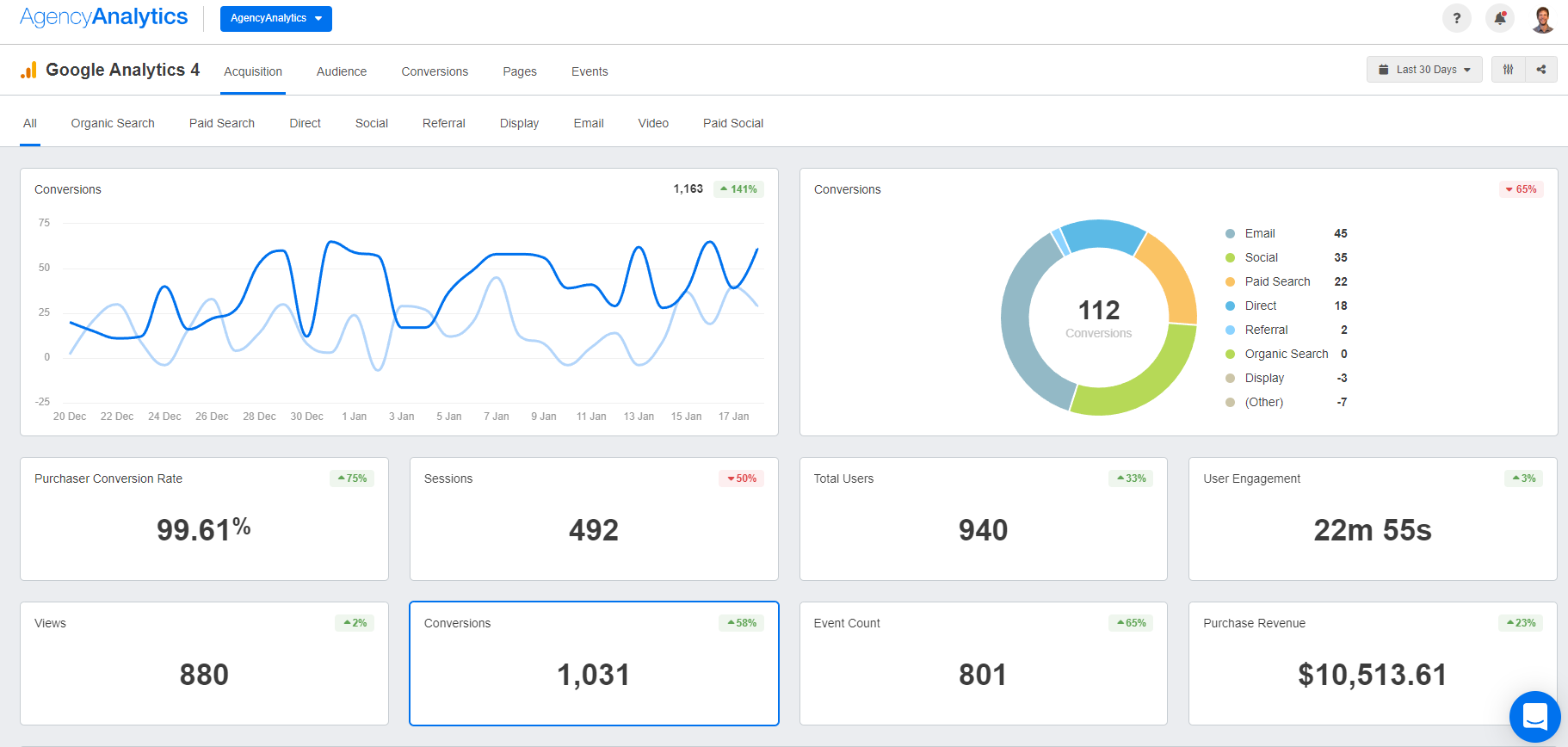
Monitor organic and paid search insights at the click of a button. Use a customizable Google Analytics dashboard that you and your clients can easily understand–try it on AgencyAnalytics with a free 14-day trial.
8. Majestic
If you’ve got a large volume of backlinks to keep track of, an SEO reporting tool like Majestic comes in handy.
In addition to backlink analysis, Majestic’s SEO software also identifies link-building opportunities, gauges website credibility, and conducts competitor analysis. Their Lite package starts from $49/month.
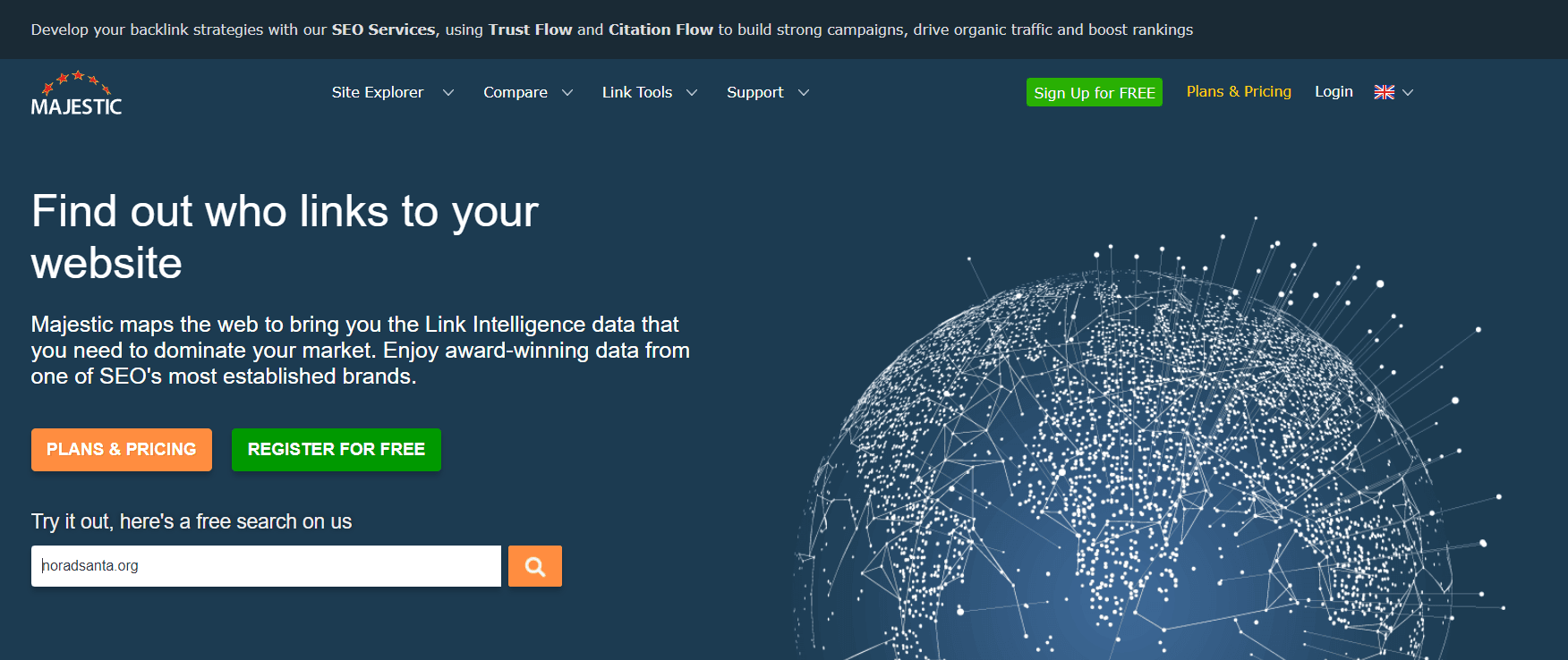
Track new or lost backlinks, referring domains, and other SEO insights at the click of a button. Simply integrate Majestic with AgencyAnalytics to pull data and report on important insights.
9. Bing Webmaster Tools
This SEM tool is an absolute must if you’re optimizing content or running Bing Ads. It gives you a more granular understanding of top inbound links, individual web page performance, and search queries.
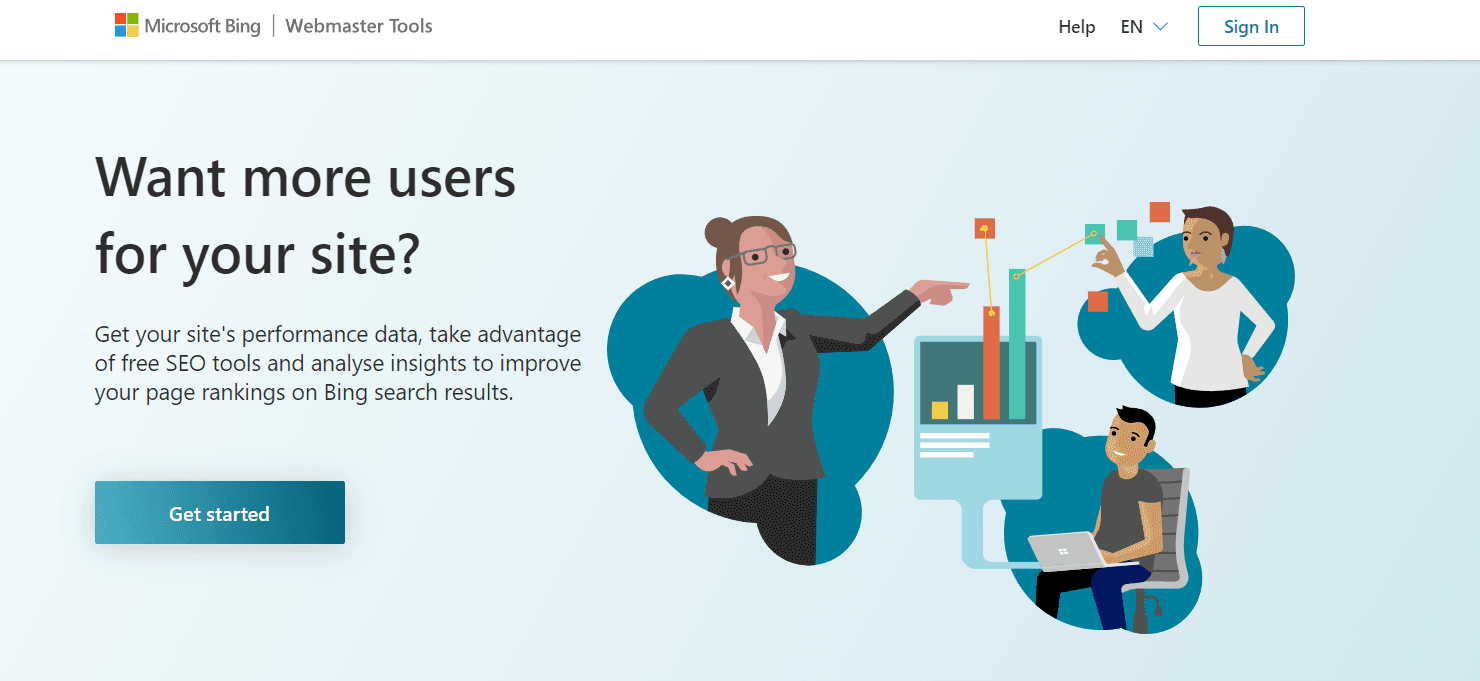
Use these insights to optimize your client’s website or even to create Bing Ads based on top-performing organic content.
10. Screaming Frog
Heard of Screaming Frog? It’s a handy tool that’s used to crawl websites for any technical SEO issues.
This SEO reporting tool helps you to identify any broken links, duplicate content, and metadata gaps that could affect search engine rankings. Their free version has a crawl limit of up to 500 URLs, while their paid version ($259/year) offers unlimited website crawls.

11. SE Ranking
SE Ranking is helpful for keeping tabs on all the SEO moving parts. This versatile digital marketing platform includes an extensive range of features like keyword tracking, competitive research, and content marketing add-ons.
Their essential plan starts from $44/month, and there’s also a free 14-day trial. With the API add on, it's easy to integrate SE Ranking data into comprehensive AgencyAnalytics dashboards.
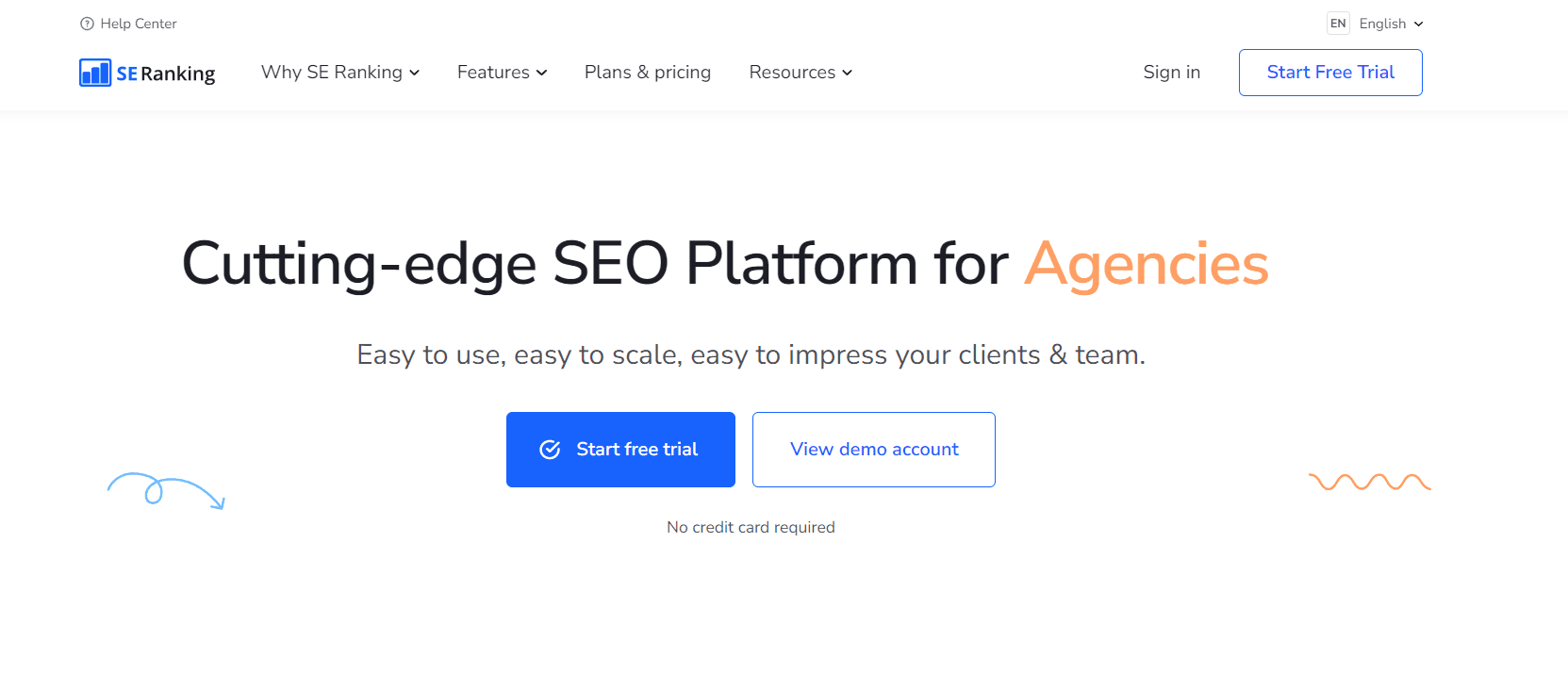
12. AgencyAnalytics
No list of SEM reporting tools would be complete without AgencyAnalytics. Few tools combine the prowess of comprehensive SEO and PPC features, data from over 80 marketing platforms, and white-label reporting.
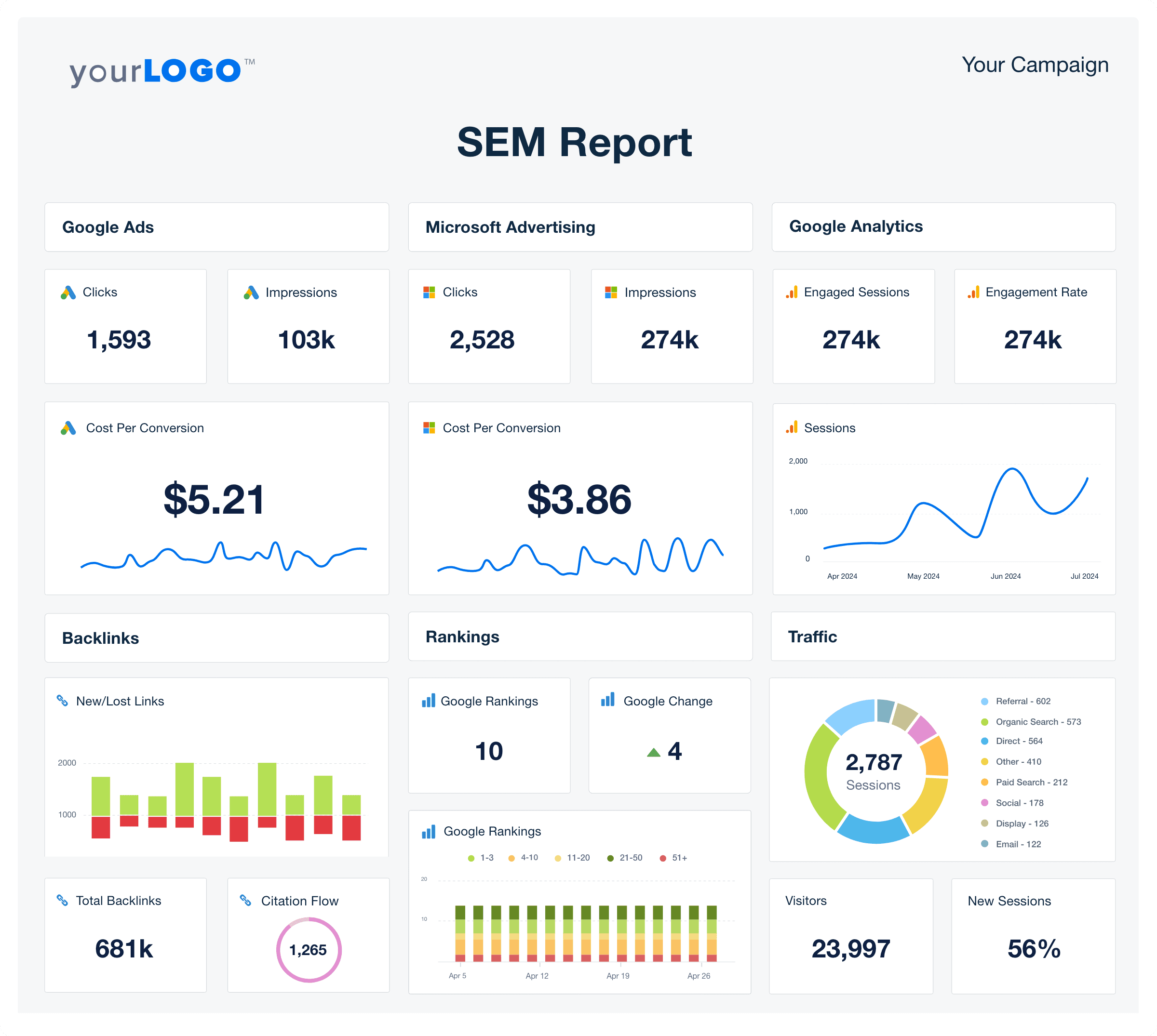
Unlike other PPC reporting tools or SEO reporting software that offer fragmented data, AgencyAnalytics integrates all your marketing reports into a seamless system, which makes implementing SEM reporting tools into your agency's processes quick and easy.
The platform streamlines the PPC and SEM reporting process, making it easy for account managers to navigate the various digital marketing metrics and created customizable SEM report templates. This one-stop-shop approach ensures you're never in the dark about your client's campaign performance.
Juggling multiple SEM platforms? No need for excessive manual work. Access pre-built dashboards and reports that automatically populate data–try it on AgencyAnalytics by signing up for a free 14-day trial today.
From the broad strokes of SEO to the finer details of an existing Google Ads campaign, AgencyAnalytics takes raw data and transforms it into beautiful dashboards and reports that clients love.
No magic wands, no secret formulas. Just a tool that understands the lay of the SEM land and helps you to navigate static and dynamic data with ease. For account managers juggling multiple digital advertising campaigns, this efficiency is not just appreciated: it's essential.
AgencyAnalytics also understands that when it comes to SEM reporting software, one size doesn't fit all. If you need to create a single report that includes both PPC and SEM metrics, you can do that with just a few clicks. Access a variety of customizable report templates and use the drag-and-drop editor to tailor the reporting format to fit each client’s unique needs, making your service far more personalized and effective.
Plans start at just $59 per month, with an affordable SEO keyword ranking tool add-on.
Manually creating reports from different platforms is a time-consuming ordeal. AgencyAnalytics simplifies the reporting process, allowing you to create reports that are not just comprehensive but also well-organized and easy to understand.
How To Create a Comprehensive SEM Report
With so many marketing tools and SEM platforms to choose from, you may be wondering–how do I consolidate all those insights into one place?
It’s a legitimate concern, especially when you’ve got so many metrics to track and multiple end-of-month reports to produce. The last thing you want while you're trying to develop and execute an SEO or PPC marketing strategy is to waste time creating manual SEM reports or battle with Google Data Studio errors. Yikes!
Luckily, there’s a better way to use your billable time: use a client reporting tool to consolidate SEM data across multiple platforms. SEO and PPC reports become practically effortless through automation that pulls in all of your client's SEO and paid advertising metrics into a single, custom report.
That way, you won’t accidentally omit information or drop the ball on meeting client expectations and take more time to generate relevant ads.
To get started:
1. Determine Your Clients’ SEM Goals Beforehand
Before mashing the gas on creating any ol’ SEM report, there’s some groundwork to do. Consider your client’s OKRs and KPIs to understand their specific needs and tailor their SEM report accordingly.
Examples of client goals include:
Getting a monthly conversion rate of 10% for ongoing PPC search ads
Generating $1,000 in revenue from paid search ad clicks
Increasing average organic SERP ranking for priority keywords from 5th to 3rd
Appearing in the top 2 results for local SEO listings
2. Use a Client Reporting Tool To Integrate Data
Next up, connect your client’s marketing platforms to a reporting tool like AgencyAnalytics.
Platforms like Ahrefs, Excel, and Semrush are great tools but best used for internal use. AgencyAnalytics puts all the important parts of client reporting into a nice presentable document with many integrations available.
Deniz Doganay, Managing Director at Digital Debut
It’s as easy as:
Signing into your AgencyAnalytics account, heading to the left-hand menu and clicking on “Integrations”
Choosing from the list of over 80 marketing data sources, including SEM platforms like:
Ahrefs
Google Ads
Google Analytics
Semrush
Moz
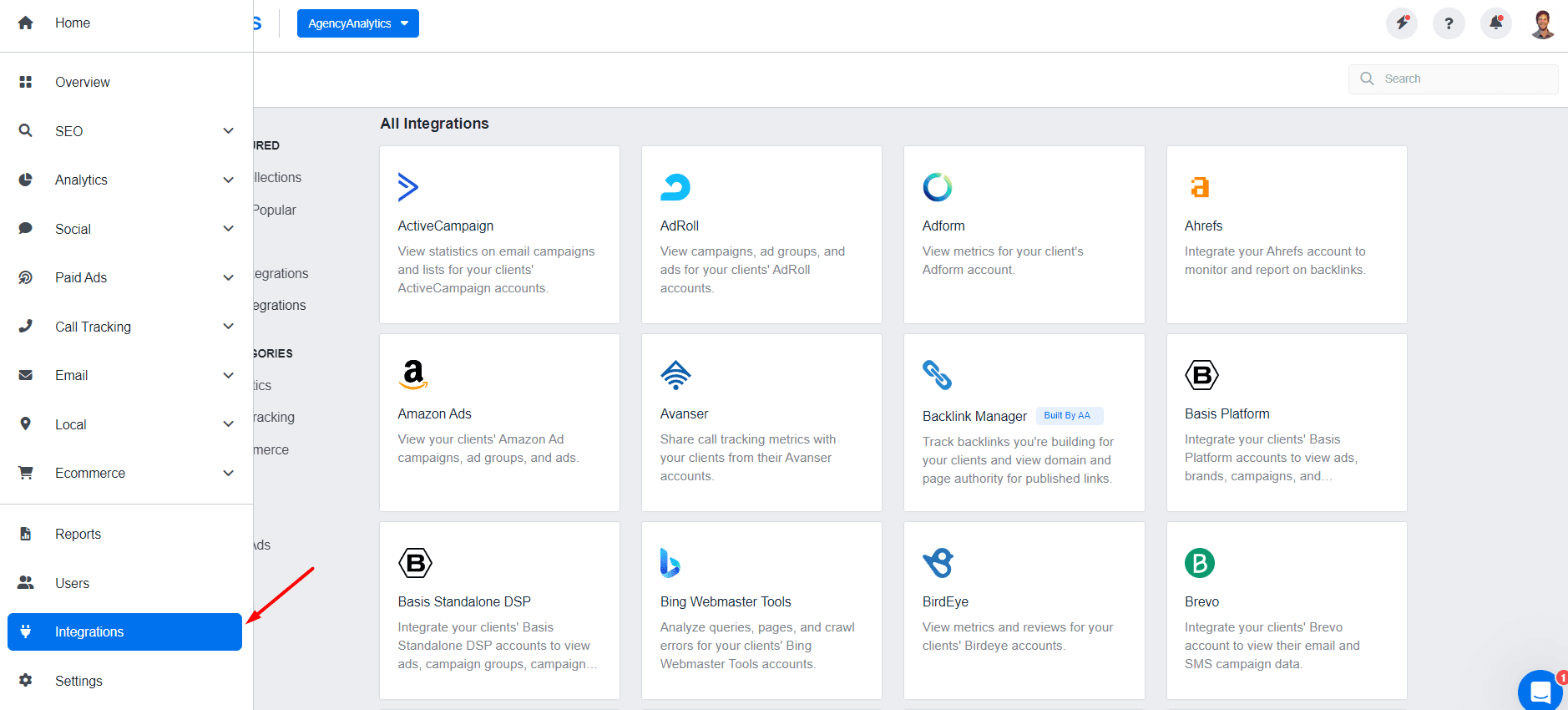
Successfully connecting your data sources and streaming insights into dashboards or reports (which we’ll explore next)
3. Use an Internal Dashboard to Monitor SEM Metrics
To ensure your team is up to date on your clients’ progress, filter those SEM insights into a dashboard for internal use.
All you have to do is:
Choose a pre-built dashboard template to avoid creating one from scratch, or
Create a custom SEM dashboard and tweak it according to your preferences. For example, this could mean a separate SEO and PPC report or a complete digital marketing dashboard:
Dragging and dropping widgets to view SEM insights side by side
Adding dynamic goal progress bars to see exactly how things are developing over time
Choosing an appropriate data visualization (e.g., switching from a pie chart to a bar graph)
Creating custom metrics that reflect your client’s unique SEM goals (e.g., calculating total website traffic across organic and paid search efforts)
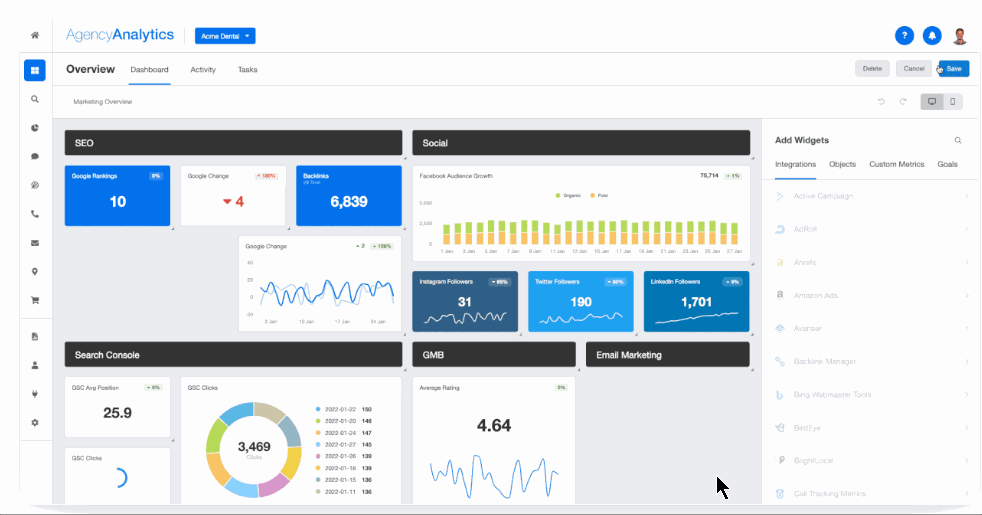
Access a range of agency-specific reporting features to save billable time and maximize your efficiency–try AgencyAnalytics today, it’s free for 14 days.
If clients want access to these real-time metrics (or even historical data), consider creating a login profile and setting user permissions.
That way, your clients will know exactly what’s happening without having to book multiple lengthy check-ins.
4. Export SEM Insights Into a Comprehensive Report
Now that you’ve successfully integrated relevant data, you’re one step closer to creating a SEM report! There are a few options, such as:
Exporting your live dashboard as a downloadable PDF or email report
Using a pre-built report template, making tweaks where needed, and replicating these custom reports for future use (e.g., building a custom PPC report and later adding side-by-side SEO data)
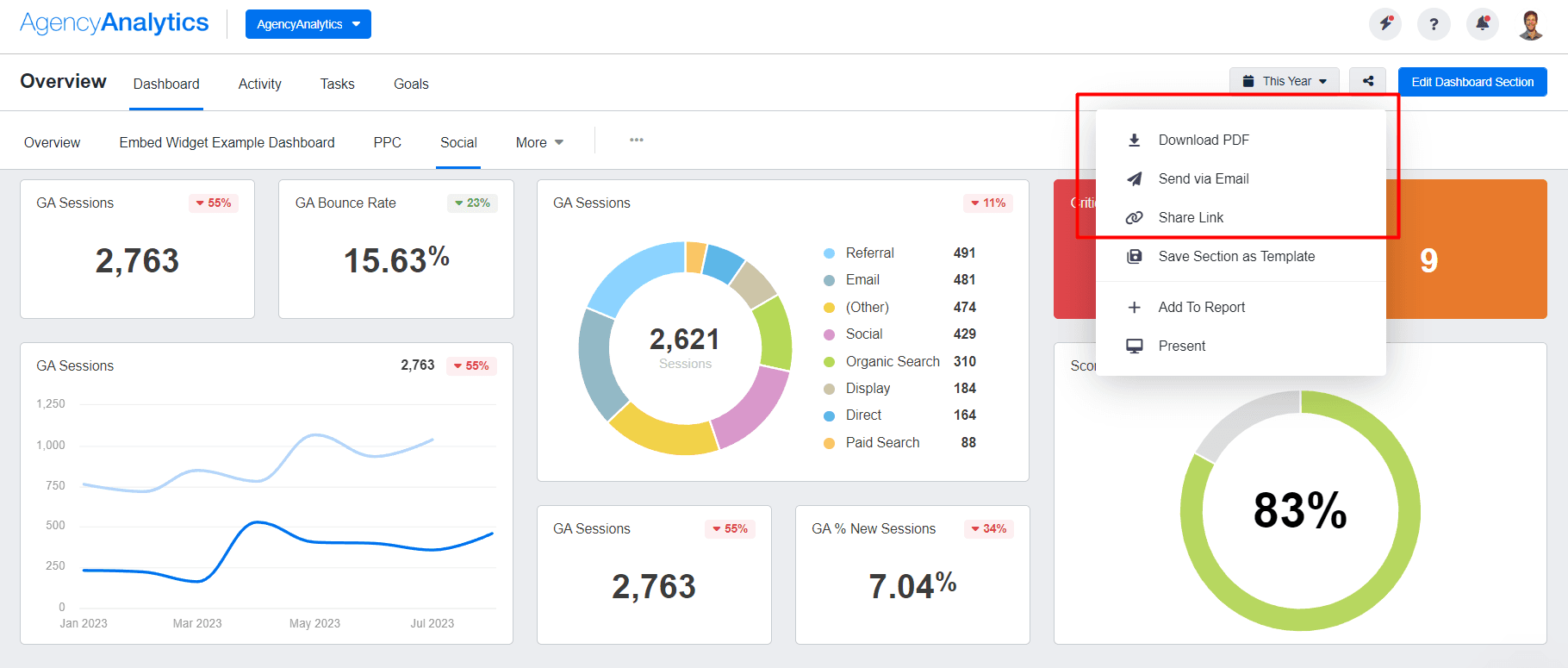
Choose the reporting format that suits your clients best. Download it, email it, or create a shareable link–it’s all possible on AgencyAnalytics, free for 14 days.
After you’ve decided on the best option, customize as needed (e.g., adding a report summary with high-level insights).
Wondering which SEO analytics or PPC metrics to include in your SEM report? Here are a few examples:
Insights for both organic and paid searches, such as:
Clickthrough rates
Conversion rates
Website traffic
Ad quality score
Referring domains
Number of new or broken backlinks
Average cost per click (CPC)
Unlock SEM Success by Reporting on SEO and PPC Insights
An effective SEM strategy infuses a combination of digital marketing tactics that work together to bring about search visibility success. With so many PPC and SEO metrics to monitor, you’ll need a comprehensive, all-in-one solution that makes life easier. That’s where SEM reporting tools like AgencyAnalytics come into play.
After implementing AgencyAnalytics, account managers consolidate PPC data and SEO metrics from multiple sources on a single dashboard. This means advertising data, from campaign costs to performance metrics, is readily accessible.
Whether you’re creating a data-blended dashboard or a custom white-label report, AgencyAnalytics will do the data retrieval and provide those valuable insights for you.
Most of our clients run many services with us across advertising and SEO. It was complicated to combine all of the data before AgencyAnalytics. Now, it's much easier to condense the results of our efforts into dashboards or automated reports. It paints a better picture of the entire marketing funnel and has all the features we need.
Graham Lumley, Director of Marketing at Blackhawk Digital Marketing
For those aiming for streamlined SEM reporting, AgencyAnalytics offers an all-in-one solution. Its capabilities ensure all your clients remain informed about their PPC advertising campaigns.
So, if you're looking for an unparalleled, all-in-one solution that simplifies SEM reporting and maximizes your client's return on investment, AgencyAnalytics is a no-brainer. It's the trusted ally you always knew you needed
No need to rely on multiple tools for client reporting. Use AgencyAnalytics to create customizable SEM dashboards and reports, free for 14 days.

Written by
Faryal Khan is a multidisciplinary creative with 10+ years of experience in marketing and communications. Drawing on her background in statistics and psychology, she fuses storytelling with data to craft narratives that both inform and inspire.
Read more posts by Faryal KhanSee how 7,000+ marketing agencies help clients win
Free 14-day trial. No credit card required.



